
Despite the frequent appearances of Osama Bin Laden and Ayman al-Zawahiri on television screens worldwide, Al Qaeda remains an elusive entity. As the world has grown increasingly familiar with the spectacle of Islamist terrorism, Al Qaeda’s essential worldview has remained bewilderingly opaque. To reveal its inner workings, Gilles Kepel and his collaborators, all scholars of Arabic and Islam, have collected and brilliantly annotated key texts of the major figures from whom the movement has drawn its beliefs and direction. The resulting volume offers an unprecedented glimpse into the assumptions of the salafist jihadists who have reshaped political life at the beginning of the third millennium.
Excerpts from the work of Azzabdallah Azzam, Ayman al-Zawahiri, Osama Bin Laden, and Abu Musab al-Zarqawi—drawn from speeches, internet postings, and published writings—tell the story of Al Qaeda’s evolution, from its origins in the Afghan war through the war in Iraq. These texts reveal the rational, discursive mode used to persuade and to justify violent armed struggle in a universe defined by militant Islam. Substantial interpretive introductions to each leader’s work and extensive critical commentary provide unparalleled access to the intellectual and doctrinal context of Al Qaeda in which these radical ideas have taken shape.
By viewing Al Qaeda from within, this indispensable volume reveals the terrorist network’s insidious role in the global web culture of today and the full dimensions of its frightening threat to world stability and security.
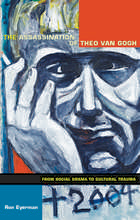
Eyerman utilizes theories of social drama and cultural trauma to evaluate the reactions to and effects of the murder. A social drama is triggered by a public transgression of taken-for-granted norms; one that threatens the collective identity of a society may develop into a cultural trauma. Eyerman contends that the assassination of Theo van Gogh quickly became a cultural trauma because it resonated powerfully with the postwar psyche of the Netherlands. As part of his analysis of the murder and reactions to it, he discusses significant aspects of twentieth-century Dutch history, including the country’s treatment of Jews during the German occupation, the loss of its colonies in the wake of World War II, its recruitment of immigrant workers, and the failure of Dutch troops to protect Muslims in Srebrenica in 1995.
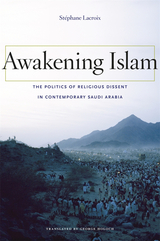
Amidst the roil of war and instability across the Middle East, the West is still searching for ways to understand the Islamic world. Stéphane Lacroix has now given us a penetrating look at the political dynamics of Saudi Arabia, one of the most opaque of Muslim countries and the place that gave birth to Osama bin Laden.
The result is a history that has never been told before. Lacroix shows how thousands of Islamist militants from Egypt, Syria, and other Middle Eastern countries, starting in the 1950s, escaped persecution and found refuge in Saudi Arabia, where they were integrated into the core of key state institutions and society. The transformative result was the Sahwa, or “Islamic Awakening,” an indigenous social movement that blended political activism with local religious ideas. Awakening Islam offers a pioneering analysis of how the movement became an essential element of Saudi society, and why, in the late 1980s, it turned against the very state that had nurtured it. Though the “Sahwa Insurrection” failed, it has bequeathed the world two very different, and very determined, heirs: the Islamo-liberals, who seek an Islamic constitutional monarchy through peaceful activism, and the neo-jihadis, supporters of bin Laden's violent campaign.
Awakening Islam is built upon seldom-seen documents in Arabic, numerous travels through the country, and interviews with an unprecedented number of Saudi Islamists across the ranks of today’s movement. The result affords unique insight into a closed culture and its potent brand of Islam, which has been exported across the world and which remains dangerously misunderstood.
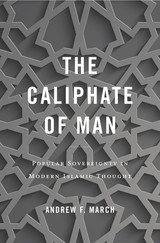
A political theorist teases out the century-old ideological transformation at the heart of contemporary discourse in Muslim nations undergoing political change.
The Arab Spring precipitated a crisis in political Islam. In Egypt Islamists have been crushed. In Turkey they have descended into authoritarianism. In Tunisia they govern but without the label of “political Islam.” Andrew March explores how, before this crisis, Islamists developed a unique theory of popular sovereignty, one that promised to determine the future of democracy in the Middle East.
This began with the claim of divine sovereignty, the demand to restore the sharīʿa in modern societies. But prominent theorists of political Islam also advanced another principle, the Quranic notion that God’s authority on earth rests not with sultans or with scholars’ interpretation of written law but with the entirety of the Muslim people, the umma. Drawing on this argument, utopian theorists such as Abū’l-Aʿlā Mawdūdī and Sayyid Quṭb released into the intellectual bloodstream the doctrine of the caliphate of man: while God is sovereign, He has appointed the multitude of believers as His vicegerent. The Caliphate of Man argues that the doctrine of the universal human caliphate underpins a specific democratic theory, a kind of Islamic republic of virtue in which the people have authority over the government and religious leaders. But is this an ideal regime destined to survive only as theory?

The Contemporary Arab Reader on Political Islam brings together the writings of highly influential figures in the field of Islamism in the contemporary Arab world, many of whose writings have never been available before in English.
Addressing the key issues such as human rights, civil society, secularism, globalisation and ummah, and the impact of the West on the modern Arab world, this is the perfect starting point for students and academics looking to understand 'Political Islam' in contemporary Arab and Muslim societies.
The contributors include such important Islamist thinkers and activists as Abdullah Azzam, central to the spread of Islamism in Afghanistan, Sayyid Muhammad Hussain Fadlallah, a major Shiite figure in contemporary Lebanon and Ahmad Bin Yousuf, a political advisor to Akram Haniyya in Gaza.
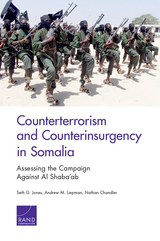

As southern Lebanon becomes the latest battleground for Islamist warriors, Everyday Jihad plunges us into the sprawling, heavily populated Palestinian refugee camp at Ain al-Helweh, which in the early 1990s became a site for militant Sunni Islamists. A place of refuge for Arabs hunted down in their countries of origin and a recruitment ground for young disenfranchised Palestinians, the camp--where sheikhs began actively recruiting for jihad--situated itself in the global geography of radical Islam.
With pioneering fieldwork, Bernard Rougier documents how Sunni fundamentalists, combining a literal interpretation of sacred texts with a militant interpretation of jihad, took root in this Palestinian milieu. By staying very close to the religious actors, their discourse, perceptions, and means of persuasion, Rougier helps us to understand how radical religious allegiances overcome traditional nationalist sentiment and how jihadist networks grab hold in communities marked by unemployment, poverty, and despair.
With the emergence of Hezbollah, the Shiite political party and guerrilla army, at the forefront of Lebanese and regional politics, relations with the Palestinians will be decisive. The Palestinian camps of Lebanon, whose disarmament is called for by the international community, constitute a contentious arena for a multitude of players: Syria and Iran, Hezbollah and the Palestinian Authority, and Bin Laden and the late Zarqawi. Witnessing everyday jihad in their midst offers readers a rare glimpse into a microcosm of the religious, sectarian, and secular struggles for the political identity of the Middle East today.
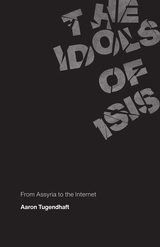
Beginning with the Islamic State’s claim that the smashed objects were idols of the “age of ignorance,” Aaron Tugendhaft questions whether there can be any political life without idolatry. He then explores the various roles Mesopotamian sculpture has played in European imperial competition, the development of artistic modernism, and the formation of Iraqi national identity, showing how this history reverberates in the choice of the Mosul Museum as performance stage. Finally, he compares the Islamic State’s production of images to the ways in which images circulated in ancient Assyria and asks how digitization has transformed politics in the age of social media. An elegant and accessibly written introduction to the complexities of such events, The Idols of ISIS is ideal for students and readers seeking a richer cultural perspective than the media usually provides.
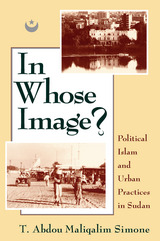
Drawing a detailed portrait of political fundamentalism during the 1985-89 period of democratic rule in the Sudan, Simone shows how the Shari‘a Movement attempted to shape a viable social order by linking religious integrity and economic development, where religious practice was to dominate all aspects of society and individuals' daily lives. However, because Sudanese society is remarkably diverse ethnically and religiously, this often led to conflict, fragmentation, and violence in the name of Islam.
Simone's own Islamic background leads him to deplore the violence and the devastating psychological, economic, and cultural consequences of one form of Islamic radicalism, while holding to hope that a viable form of this inherently political religion can in fact be applied. As a counterpoint, he ends with a discussion of South Africa's Call of Islam, which seeks political unity through a more tolerant interpretation of Islam.
As an introduction to religious discourse in Africa, this book will be widely read by students and scholars throughout African Studies, Religious Studies, Anthropology, and Political Science.
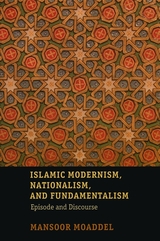
An ambitious comparative historical analysis of ideological production in the Islamic world from the mid-1800s to the present, Mansoor Moaddel's Islamic Modernism, Nationalism, and Fundamentalism provides a unique perspective for understanding the social conditions of these discourses. Moaddel characterizes these movements in terms of a sequence of cultural episodes characterized by ideological debates and religious disputations, each ending with a revolution or military coup. Understanding how the leaders of these movements formulated their discourses is, for Moaddel, the key to understanding Middle Eastern history. This premise allows him to unlock for readers the historical process that started with Islamic modernism and ended with fundamentalism.
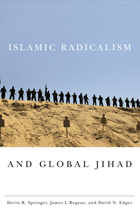
Jihadist ideology inspires a diverse and decentralized collection of radical groups to fight alleged enemies of Islam and to attempt to “restore” a holy caliphate to unite Muslim peoples across the Middle East, Africa, and Asia. Islamic Radicalism and Global Jihad provides unique insights into the philosophical foundations, strategic vision, organizational dynamics, and tactics of the modern jihadist movement—with specific attention to its primary driver, Al-Qa’ida.
Springer, Regens, and Edger draw heavily on Arabic language sources seldom seen in the West to explain what jihadists want and how radical thinkers have distorted the teachings of Islam to convince followers to pursue terrorism as a religious duty. With sophisticated and systematic analysis, the authors lead their readers on a fascinating intellectual journey through the differing ideas, goals, and vulnerabilities of the jihadist movement as it has evolved over time. The authors also impart wisdom from their own professional experience with terrorism, counterinsurgency, and intelligence to provide scholars, students, counterterrorism professionals, and general readers with this accessible overview of key radical Islamic thinkers and today’s jihadists.

Now, as Islamic State (also known as ISIS) is moving to take over broad swathes of territory throughout the Middle East, Griffin is back once again, ready to offer nuanced insight, analysis, history, and context for readers looking to understand this new and frightening threat.
An experienced journalist, Griffin tells the story of the development of the Islamic State in his usual fast-paced, narrative driven style, helping us to understand the long roots of the Islamic State in Iraq, their quiet involvement in the Arab Spring, and their rapid rise amid the chaos generated by the Syrian war. He clearly and carefully presents the interlocking web of influence, arms, and money from Saudi Arabia, Qatar, Turkey, and Iraq that have fuelled the rise of Islamic State, and highlights the importance of the uprising against Assad in Syria and the West’s relative inability to influence or support it. Ultimately, Griffin offers a portrait of a complicated, multivalent movement, one with roots in numerous real or perceived grievances and historical mistakes and one with the potential to foment unrest and violence throughout the Middle East for some time to come.
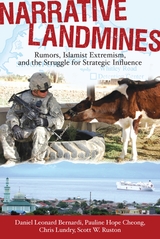
2012 Outstanding Co-Authored Book of the Year by the 2013 Distinguished Scholarship Awards Committee for the International and Intercultural Communication Division (IICD) of the National Communication Association (NCA)
Islamic extremism is the dominant security concern of many contemporary governments, spanning the industrialized West to the developing world. Narrative Landmines explores how rumors fit into and extend narrative systems and ideologies, particularly in the context of terrorism, counter-terrorism, and extremist insurgencies. Its concern is to foster a more sophisticated understanding of how oral and digital cultures work alongside economic, diplomatic, and cultural factors that influence the struggles between states and non-state actors in the proverbial battle of hearts and minds. Beyond face-to-face communication, the authors also address the role of new and social media in the creation and spread of rumors.
As narrative forms, rumors are suitable to a wide range of political expression, from citizens, insurgents, and governments alike, and in places as distinct as Singapore, Iraq, and Indonesia—the case studies presented for analysis. The authors make a compelling argument for understanding rumors in these contexts as “narrative IEDs,” low-cost, low-tech weapons that can successfully counter such elaborate and expansive government initiatives as outreach campaigns or strategic communication efforts. While not exactly the same as the advanced technological systems or Improvised Explosive Devices to which they are metaphorically related, narrative IEDs nevertheless operate as weapons that can aid the extremist cause.
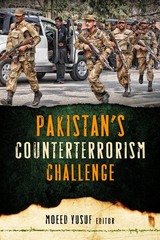
Pakistan, which since 9/11 has come to be seen as one of the world’s most dangerous places and has been referred to as “the epicenter of international terrorism,” faces an acute counterterrorism (CT) challenge. The book focuses on violence being perpetrated against the Pakistani state by Islamist groups and how Pakistan can address these challenges, concentrating not only on military aspects but on the often-ignored political, legal, law enforcement, financial, and technological facets of the challenge.
Edited by Moeed Yusuf of the US Institute of Peace, and featuring the contributions and insights of Pakistani policy practitioners and scholars as well as international specialists with deep expertise in the region, the volume explores the current debate surrounding Pakistan’s ability—and incentives—to crack down on Islamist terrorism and provides an in-depth examination of the multiple facets of this existential threat confronting the Pakistani state and people.
The book pays special attention to the non-traditional functions of force that are central to Pakistan’s ability to subdue militancy but which have not received the deserved attention from the Pakistani state nor from western experts. In particular, this path-breaking volume, the first to explore these various facets holistically, focuses on the weakness of political institutions, the role of policing, criminal justice systems, choking financing for militancy, and regulating the use of media and technology by militants. Military force alone, also examined in this volume, will not solve Pakistan’s Islamist challenge. With original insights and attention to detail, the authors provide a roadmap for Western and Pakistani policymakers alike to address the weaknesses in Pakistan’s CT strategy.
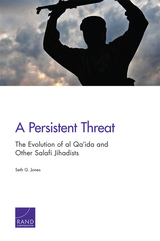

This book traces the essence of the Islamist Revolution from its origins in Egypt, through Najaf, Lebanon, Iran and the Iranian Revolution to today. Alastair Crooke presents a compelling account of the ideas and energy which are mobilising the Islamic world.
Crooke argues that the West faces a mass mobilisation against the US-led Western project. The roots of this conflict are described in terms of religious themes that extend back over 500 years. They represent clashing systems of thinking and values. Islamists have a vision for the future of their own societies which would entail radical change from Western norms. Resistance is presented as the means to force Western behaviour to change and to expose the essential differences between the two modes of thinking.
This is a rigourous account that traces the threads of revolution of various movements, including the influence of 'political Shi'ism' and the Iranian Revolution and its impact on Hezbollah and Hamas.
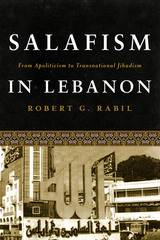
Salafism, comprised of fundamentalist Islamic movements whose adherents consider themselves the only “saved” sect of Islam, has been little studied, remains shrouded in misconceptions, and has provoked new interest as Salafists have recently staked a claim to power in some Arab states while spearheading battles against “infidel” Arab regimes during recent rebellions in the Arab world. Robert G. Rabil examines the emergence and development of Salafism into a prominent religious movement in Lebanon, including the ideological and sociopolitical foundation that led to the three different schools of Salafism in Lebanon: quietist Salafists, Haraki (active) Salafists; and Salafi Jihadists.
Emphasizing their manhaj (methodology) toward politics, the author surveys Salafists’ ideological transformation from opponents to supporters of political engagement. Their antagonism to Hezbollah, which they denounce as the party of Satan, has risen exponentially following the party’s seizure of Beirut in 2008 and support of the tyrannical Syrian regime. Salafism in Lebanon also demonstrates how activists and jihadi Salafists, in response to the political weakness of Sunni leadership, have threatened regional and international security by endorsing violence and jihad.
Drawing on field research trips, personal interviews, and Arabic primary sources, the book explores the relationship between the ideologies of the various schools of Salafism and their praxis in relation to Lebanese politics. The book should interest students and scholars of Islamic movements, international affairs, politics and religion, and radical groups and terrorism.

The book begins with his arrest and moves to the courtroom, telling the tale of Moussaoui's struggle with his defense lawyers and raising questions about his ability to be "represented" given his national and personal identity. Donahue explores his background in France as the son of Moroccan immigrants and follows him to London, Afghanistan, and Malaysia as he joins the growing fraternity of an Islam without borders. He acquires an extra-national identity in which his loyalty is no longer constituted by his national identity, but by his allegiance to fundamental Islam.
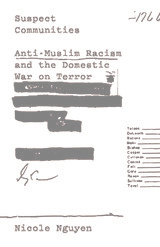
The first major qualitative study of “countering violent extremism” in key U.S. cities
Suspect Communities is a powerful reassessment of the U.S. government’s “countering violent extremism” (CVE) program that has arisen in major cities across the United States since 2011. Drawing on an interpretive qualitative study, it examines how the concept behind CVEaimed at combating homegrown terrorism by engaging Muslim community members, teachers, and religious leaders in monitoring and reporting on young peoplehas been operationalized through the everyday work of CVE actors, from high-level national security workers to local community members, with significant penalties for the communities themselves.
Nicole Nguyen argues that studying CVE provides insight into how the drive to bring liberal reforms to contemporary security regimes through “community-driven” and “ideologically ecumenical” programming has in fact further institutionalized anti-Muslim racism in the United States. She forcefully contends that the U.S. security state has designed CVE to legitimize and shore up support for the very institutions that historically have criminalized, demonized, and dehumanized communities of color, while appearing to learn from and attenuate past practices of coercive policing, racial profiling, and political exclusion.
By undertaking this analysis, Suspect Communities offers a vital window into the inner workings of the U.S. security state and the devastating impact of CVE on local communities.
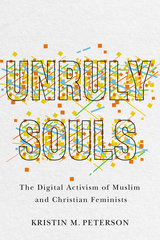

What is driving political extremism in Pakistan? In early 2011, the prominent Pakistani politician Salmaan Taseer was assassinated by a member of his own security team for insulting Islam by expressing views in support of the rights of women and religious minorities. Benazir Bhutto, the former prime minister, was killed by gunfire and explosive devices as she left a campaign event in December 2007; strong evidence links members of extremist organizations to her slaying.
These murders underscore the fact that religion, politics, and policy are inextricably linked in Pakistan. In this book, Haroon K. Ullah analyzes the origins, ideologies, bases of support, and electoral successes of the largest and most influential Islamic parties in Pakistan. Based on his extensive field work in Pakistan, he develops a new typology for understanding and comparing the discourses put forth by these parties in order to assess what drives them and what separates the moderate from the extreme. A better understanding of the range of parties is critical for knowing how the US and other Western nations can engage states where Islamic political parties hold both political and moral authority.
Pakistan’s current democratic transition will hinge on how well Islamic parties contribute to civilian rule, shun violence, and mobilize support for political reform. Ullah’s political-party typology may also shed light on the politics of other majority-Muslim democracies, such as Egypt and Tunisia, where Islamist political parties have recently won elections.

In this original and provocative book, Nahed Artoul Zehr explores the theological underpinnings of al-Qaeda and related Islamic movements such as ISIS. She demonstrates how this marginal narrative transformed al-Qaeda from a relatively hierarchical and regional organization to a globalized, decentralized, and diffuse system of networks. She draws connections between religious ideas and strategy in her translation and analysis of leading theoretical and tactical jihad text, The Global Islamic Resistance Call, by Mustafa abu Mus’ ab al-Suri.
Just as importantly, she questions al-Qaeda’s understanding of the Islamic tradition on the use of force, arguing that it reflects a weak understanding of this tradition. More specifically, it is al-Qaeda’s (and related groups’) break with this tradition that is key to an al-Qaeda defeat.
Simultaneously, Zehr critiques the US military and policy establishment as it attempts to offer counter-narratives to the al-Qaeda phenomenon that emphasizes “good Muslims” versus “bad Muslims” in order to embrace a “moderate” form of Islam. According to Zehr, this approach is misguided: it is beyond the US government’s purview and expertise to make such theological claims about Islam. Better, she argues, to note the counter-narratives that are coming from within the Muslim community and other nongovernment institutions interested in moving this work forward.
By refocusing our attention on al-Qaeda’s narrative and the various ways thatit is being contested, the book provides an alternate lens from which to viewal-Qaeda and the al-Qaeda phenomenon for Islamic and US foreign policy scholars and students.
READERS
Browse our collection.
PUBLISHERS
See BiblioVault's publisher services.
STUDENT SERVICES
Files for college accessibility offices.
UChicago Accessibility Resources
home | accessibility | search | about | contact us
BiblioVault ® 2001 - 2024
The University of Chicago Press









